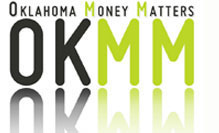Banking
 Page 6 of 13
Page 6 of 13
While all financial institutions keep your money secure and easy to access, that doesn’t mean they’re all created equal. It’s important to understand your options and to shop around for an institution that offers the best deal for you.
Banks vs. Credit Unions
Many people may think that banks and credit unions are the same, but they have several key differences.
Who owns it?
A bank is owned by a group of investors whose capital investment funds the day-to-day functions of the bank. Some are nationwide; others are local, community banks. A credit union is designed to provide services to a specific group of individuals such as teachers, state employees or military personnel. It’s owned completely by its members and the day-to-day operations are funded by member’s money.
Who can use it?
Anyone can use a bank, so long as they’re in good financial standing and can meet the bank’s criteria, such as minimum deposits, to open an account. Many credit unions are only available to certain groups, like employees of a particular company or industry. However, there are credit unions that are open to the public.
What do they offer?
Banks tend to focus more on the variety of services, whereas credit unions are known for focusing on quality of service. Because they are less profit-driven, many credit unions can offer higher savings rates and lower loan rates. However, many banks offer more convenient locations and services.
How safe are they?
As previously mentioned, both banks and credit unions insure your funds up to $250,000. They’re both insured by individual not-for-profit agencies and are both generally considered to be safe.


